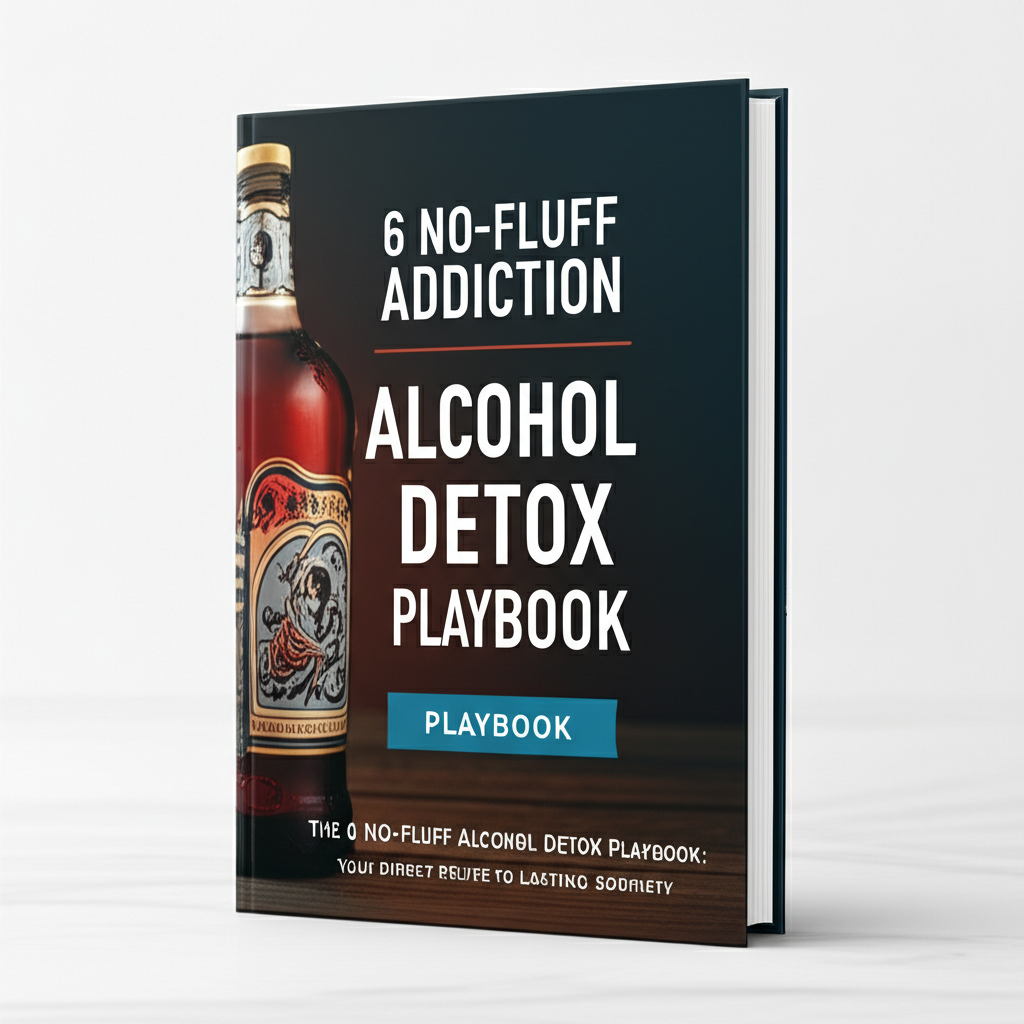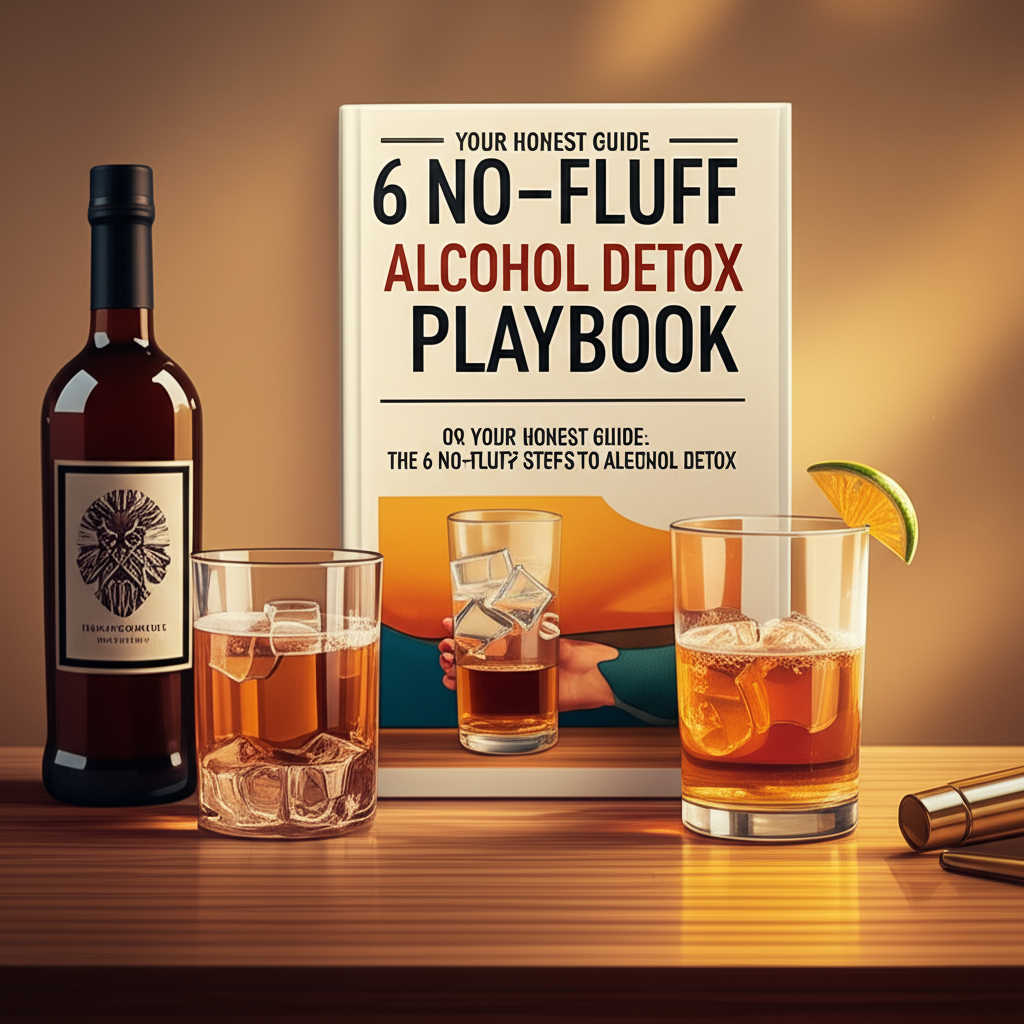The insidious grip of alcohol addiction can feel like an unbreakable chain, slowly tightening its hold, dimming the vibrancy of life, and isolating individuals from their true selves and loved ones. The decision to break free, to embark on the challenging yet ultimately rewarding path of alcohol detox, is one of the most courageous steps a person can take. It’s a declaration of war against a pervasive disease, a reclaiming of autonomy, and the first true step towards a healthier, happier future.
However, the journey of alcohol detox is rarely simple or without peril. For many, the idea of detox evokes fear – fear of withdrawal symptoms, fear of failure, and fear of the unknown. This fear is not unfounded; attempting to detox from alcohol without proper guidance can be dangerous, even life-threatening. This article aims to demystify the process, equip you with essential knowledge, and provide a comprehensive, actionable blueprint in the form of 3 Ultimate Addiction Alcohol Detox Checklists. These checklists are designed to ensure your detox is not only successful but, most importantly, safe, laying a solid foundation for sustainable sobriety.
Understanding Alcohol Detox: More Than Just Quitting
Before diving into the checklists, it’s crucial to understand what alcohol detox truly entails. Detoxification, in the context of alcohol addiction, is the process of safely eliminating alcohol and its toxins from the body. When someone drinks heavily and consistently over time, their brain and body adapt to the constant presence of alcohol, developing a physical dependence. Alcohol acts as a central nervous system depressant, and the body compensates by increasing excitatory neurotransmitters to maintain a sense of balance.
When alcohol intake suddenly stops or is significantly reduced, the body’s overactive excitatory system goes into overdrive, leading to a range of uncomfortable and potentially dangerous withdrawal symptoms. These can vary widely in severity, depending on factors such as:
- Duration and quantity of alcohol consumed: Longer, heavier drinking leads to more severe dependence.
- Individual physiology: Metabolism, general health, age, and genetics play a role.
- Presence of co-occurring medical or mental health conditions: These can complicate detox.
- History of previous detox attempts: Each subsequent withdrawal can be more severe (kindling effect).
Detox is not recovery itself; rather, it is the critical first phase that clears the body and mind enough to begin the deeper psychological and behavioral work necessary for long-term sobriety.
Why a Safe Detox is Non-Negotiable
Attempting "cold turkey" detox at home without medical supervision is incredibly risky and can have severe, even fatal, consequences. The body’s reaction to alcohol withdrawal can range from mild discomfort to life-threatening emergencies.
Potential Dangers of Unsupervised Alcohol Detox:
- Severe Dehydration and Electrolyte Imbalances: Vomiting and sweating can quickly lead to dangerous levels.
- Seizures: Alcohol withdrawal seizures can occur within 6-48 hours after the last drink, posing a significant risk of injury or brain damage.
- Delirium Tremens (DTs): A severe form of alcohol withdrawal that can emerge 2-5 days after the last drink. Symptoms include profound confusion, rapid heart rate, high blood pressure, fever, agitation, and terrifying hallucinations. DTs are a medical emergency with a significant mortality rate if untreated.
- Cardiac Complications: Irregular heartbeats, high blood pressure, and increased risk of heart attack or stroke.
- Hallucinations: Visual, auditory, or tactile hallucinations can be extremely distressing and lead to dangerous behaviors.
- Psychological Distress: Intense anxiety, panic attacks, severe depression, and suicidal ideation are common during withdrawal.
Given these serious risks, professional medical supervision during alcohol detox is not just recommended – it is essential. A supervised detox ensures that medical professionals can monitor vital signs, administer medications to alleviate symptoms and prevent complications, and provide a safe and supportive environment.
The 3 Ultimate Addiction Alcohol Detox Checklists: Your Blueprint for Recovery
Embarking on alcohol detox requires careful planning and execution. These three checklists break down the process into manageable, actionable steps, guiding you from the initial decision to the critical post-detox phase.
Checklist 1: The Pre-Detox Preparation — Laying the Groundwork
This initial phase is about acknowledging the problem, gathering information, and making informed decisions to set the stage for a safe and effective detox.
1. Acknowledge and Commit:
- Recognize the problem: Honestly assess the extent of your alcohol use and its impact on your life.
- Make the decision to quit: This is the most challenging and crucial step. Your commitment is the driving force.
- Understand it’s a disease: Remove self-blame and stigma. Addiction is a treatable medical condition.
2. Seek Professional Medical Assessment:
- Consult your primary care physician: Discuss your drinking habits, medical history, and desire to detox. They can provide an initial assessment and referrals.
- Undergo a comprehensive health check-up:
- Blood tests (liver function, kidney function, electrolyte levels, nutritional deficiencies).
- Assessment for co-occurring mental health disorders (depression, anxiety, PTSD) that often accompany addiction.
- Evaluation for other medical conditions exacerbated by alcohol (e.g., heart disease, diabetes).
- Be honest and transparent: Provide accurate information about your alcohol consumption, duration, and any previous withdrawal experiences. This allows medical professionals to tailor the safest detox plan.
3. Choose Your Detox Environment:
- Inpatient Medical Detox: Highly recommended for severe dependence, history of severe withdrawal, co-occurring conditions, or lack of a stable home environment.
- Pros: 24/7 medical supervision, immediate access to medications, structured environment, removal from triggers.
- Cons: Can be more expensive, temporary separation from family/work.
- Outpatient Medical Detox: Suitable for individuals with mild to moderate dependence, strong support systems, and good overall health.
- Pros: Allows you to stay home, maintain work/family responsibilities.
- Cons: Requires strong self-discipline, less intensive medical monitoring.
- Research reputable detox centers: Look for licensed facilities with experienced medical staff, appropriate accreditation, and positive reviews.
4. Build Your Support System:
- Inform trusted loved ones: Share your decision with family or close friends who can offer emotional support and practical help.
- Identify a sober support person: Someone you can call during difficult moments.
- Research local support groups: Look into Alcoholics Anonymous (AA), SMART Recovery, or other peer support groups that you can join before detox to build connections.
5. Practical Planning:
- Arrange time off work/school: Give yourself adequate time to focus solely on detox and recovery.
- Secure childcare or pet care: Ensure these responsibilities are handled so you can fully commit.
- Financial planning: Understand the costs involved and explore insurance coverage or financial assistance options.
- Prepare your home environment (if outpatient): Remove all alcohol, dispose of any paraphernalia, and create a calm, comfortable space.
Checklist 2: The During-Detox Process — Navigating Withdrawal Safely
This phase is the acute period of withdrawal, where medical oversight and a supportive environment are paramount.
1. Medical Supervision and Medication Management:
- Adhere strictly to medical advice: Follow all instructions from your detox team regarding medication dosages and schedules.
- Receive FDA-approved medications: These are crucial for managing withdrawal symptoms and preventing complications. Common medications include:
- Benzodiazepines (e.g., Librium, Ativan, Valium): To reduce anxiety, prevent seizures, and manage agitation.
- Anti-seizure medications (e.g., gabapentin): For individuals at high risk of seizures.
- Beta-blockers (e.g., propranolol): To manage high blood pressure and rapid heart rate.
- Vitamins (especially B vitamins like thiamine): To prevent Wernicke-Korsakoff syndrome, a severe neurological disorder caused by thiamine deficiency common in alcoholics.
- Continuous monitoring: Expect regular checks of vital signs (heart rate, blood pressure, temperature) and symptom assessment.
- Open communication: Report any new or worsening symptoms immediately to your medical team.
2. Hydration and Nutrition:
- Stay well-hydrated: Drink plenty of water, clear broths, and electrolyte-rich beverages (e.g., sports drinks, coconut water) to combat dehydration.
- Focus on nutrient-dense foods: Even if appetite is low, try to consume small, frequent meals that are easy to digest.
- Examples: Soups, smoothies, plain toast, crackers, fruits, vegetables.
- Avoid caffeine and sugary drinks: These can worsen anxiety and disrupt sleep during detox.
3. Managing Withdrawal Symptoms:
- Understand what to expect: Common symptoms include tremors, nausea, vomiting, headache, sweating, anxiety, insomnia, and irritability. Knowing they are temporary can help.
- Utilize comfort measures:
- Rest: Prioritize sleep and relaxation.
- Distraction: Engage in gentle, non-stimulating activities like reading, listening to calming music, or meditation.
- Warm baths or showers: Can help with muscle aches and relaxation.
- Deep breathing exercises: To manage anxiety and panic.
4. Creating a Calming and Safe Environment:
- Minimize external stimuli: Reduce noise, dim lights, and avoid stressful situations.
- Ensure physical safety: Especially if seizures or severe disorientation are possible. In an inpatient setting, this is managed by staff. At home, ensure clear pathways and have someone present.
5. Psychological Support During Detox:
- Engage in initial counseling: Many detox centers offer individual or group therapy sessions during detox to begin addressing the psychological aspects of addiction.
- Process emotions: Detox can bring up intense emotions. Having a therapist or counselor available to help you process these feelings is invaluable.
Checklist 3: The Post-Detox Aftercare — Sustaining Long-Term Sobriety
Detox is merely the first step. The real work of recovery begins after the acute withdrawal phase. This checklist focuses on building a robust framework for long-term sobriety.
1. Develop a Comprehensive Aftercare Plan:
- Work with your detox team or an addiction specialist: Create a personalized plan that addresses your specific needs and triggers. This plan is your roadmap for sustained recovery.
- Elements of a strong aftercare plan typically include:
- Individual therapy and counseling.
- Participation in support groups.
- Relapse prevention strategies.
- Addressing co-occurring mental health disorders.
- Healthy lifestyle changes.
- Building a sober support network.
2. Engage in Individual and Group Therapy:
- Individual Therapy (e.g., Cognitive Behavioral Therapy – CBT): Helps identify triggers, develop coping mechanisms, address underlying trauma, and change destructive thought patterns.
- Group Therapy: Provides a sense of community, shared experience, and allows individuals to learn from others’ struggles and successes.
3. Participate in Support Group Engagement:
- Attend regular meetings: Join peer-led support groups like Alcoholics Anonymous (AA), Narcotics Anonymous (NA), or SMART Recovery. These groups offer invaluable peer support, sponsorship, and a structured path to recovery.
- Find a sponsor/mentor: Someone with lived experience who can guide you through the recovery process and provide accountability.
4. Integrate Healthy Lifestyle Changes:
- Prioritize physical health:
- Regular exercise: Releases endorphins, reduces stress, and improves mood.
- Balanced nutrition: Supports brain health and overall well-being.
- Sufficient sleep: Crucial for emotional regulation and cognitive function.
- Develop new hobbies and interests: Fill the void left by alcohol with positive, fulfilling activities.
- Practice mindfulness and stress reduction: Meditation, yoga, or deep breathing can help manage cravings and emotional challenges.
5. Regular Check-ins and Accountability:
- Maintain contact with your therapist, doctor, and sponsor: Regular check-ins provide opportunities to discuss challenges, celebrate successes, and adjust your plan as needed.
- Be accountable: Take responsibility for your actions and progress. This strengthens your commitment to sobriety.
- Address co-occurring disorders: Continue treatment for any mental health conditions (depression, anxiety, etc.) that may have been masked or exacerbated by alcohol use. Integrated treatment is key for holistic recovery.
Important Considerations and Red Flags
- Never Attempt Cold Turkey Detox Alone: We cannot stress this enough. The risks are too high. Always seek professional medical guidance.
- Be Completely Honest with Medical Professionals: Withholding information about your drinking history or other health conditions can jeopardize your safety during detox.
- Understand the Journey is Personal: Recovery is not a linear path. There will be good days and challenging days. Your journey is unique, and comparing yourself to others can be counterproductive.
- Relapse is Not Failure: If a relapse occurs, it is a setback, not the end of your journey. It’s a learning opportunity. Reach out to your support system and medical team immediately to get back on track.
- Detox is Just the Beginning: The physical detox lasts a few days to a week, but the psychological and emotional recovery is a lifelong process. Commit to continuous aftercare.
Conclusion: Your Blueprint for a Sober Future
The decision to embark on alcohol detox is a profound declaration of self-worth and a commitment to a life free from addiction’s chains. While the path can seem daunting, by diligently following the 3 Ultimate Addiction Alcohol Detox Checklists, you equip yourself with the knowledge, resources, and structured approach necessary for a safe and successful journey.
From the crucial pre-detox preparation that involves professional assessment and building a robust support system, through the medically supervised during-detox phase that prioritizes your safety and comfort, to the vital post-detox aftercare that ensures sustainable sobriety through therapy and healthy lifestyle integration – each step is interconnected and essential.
Remember, you don’t have to face this challenge alone. Professional medical guidance, compassionate support, and a well-thought-out plan are your most powerful allies. By embracing these checklists, you’re not just detoxing; you’re actively building your blueprint for a healthier, happier, and truly free life. Take that courageous first step today – your sober future awaits.








